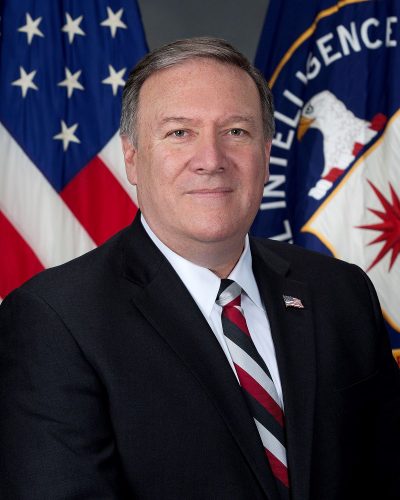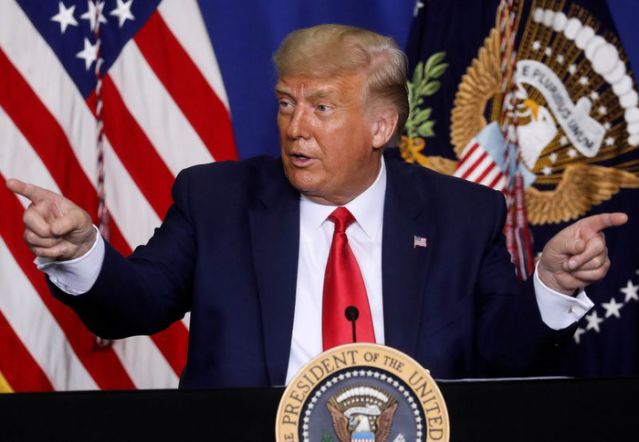With the United States presidential elections drawing inexorably closer, the Trump administration has now evidently fixed its foreign policy radar unmistakably on the hemisphere, mindful of its understanding of the role that key constituencies can play in determining whether or not he will be favoured with a second term in office.
Two weeks ago Washington’s foreign policy spotlight was fixed on President Trump’s high-profile Secretary of State, Mike Pompeo, who benefitted from treatment befitting a Head of State wherever he went on his whistle stop tour that took him to countries in the hemisphere that included Guyana, Suriname and Brazil. As it happened, however, attempts to finesse Mr. Pompeo’s jaunt did little to disguise the fact that the bottom line of his otherwise unlikely visit to this part of the world was, in fact, intended to send a message to a chunk of US voters that the Trump administration continues to be steadfast in its determination to evict the Maduro administration from office in Venezuela.

For Washington, however, the current preoccupation with the hemisphere does not end there.
Reports earlier this week indicate the strategic importance of yet another key US electoral constituency, Cuban-Americans. As part of what has long been its practice of targeting prominent functionaries in out of favor regimes for sanctions, the Trump administration is now reportedly targeting a Castro in-law, the son-in-law of retired Cuban leader Raul Castro with sanctions, a move that fits in the wider strategy of sending a message to a key constituency regarding its posture towards the Cuban regime ahead of the presidential election in November.
In the middle of this week we learnt of an announcement from both the US State and Treasury Departments to the effect that Luis Alberto Rodríguez López-Calleja, the husband of Castro’s daughter, Deborah, had been added to Washington’s so-called “specially designated nationals and blocked persons,” the accusation being that he has been involved in helping to fund human-rights abuses and working in concert with Venezuela to suppress Cubans’ freedoms. The move reportedly freezes such assets as Lopez-Calleja may have in US jurisdictions and bars Americans from doing business with him.
The announcement is the administration’s latest action against Cuba and comes just days after it imposed sanctions on a debit card operation that allowed Cubans to buy food, appliances and other items with money sent by relatives in the United States.
On Monday, Pompeo, who remains at the centre of the current spate of US foreign policy attention which the Hemisphere is now attracting, reportedly announced that FINCIMEX, a Cuban state company that processes remittances and issues the American International Services debit card, had been added to the US sanctions list. The card had only been accepted by the US a few months earlier reportedly amidst the coronavirus pandemic and its reported impact on the availability of consumer goods in Cuba.
President Trump is reportedly focused on securing votes from anti-Castro Cuban-Americans in Florida and elsewhere and his reported strategy has been to present his Democratic opponent, Joe Biden as ‘soft’ on the Cuban administration.






